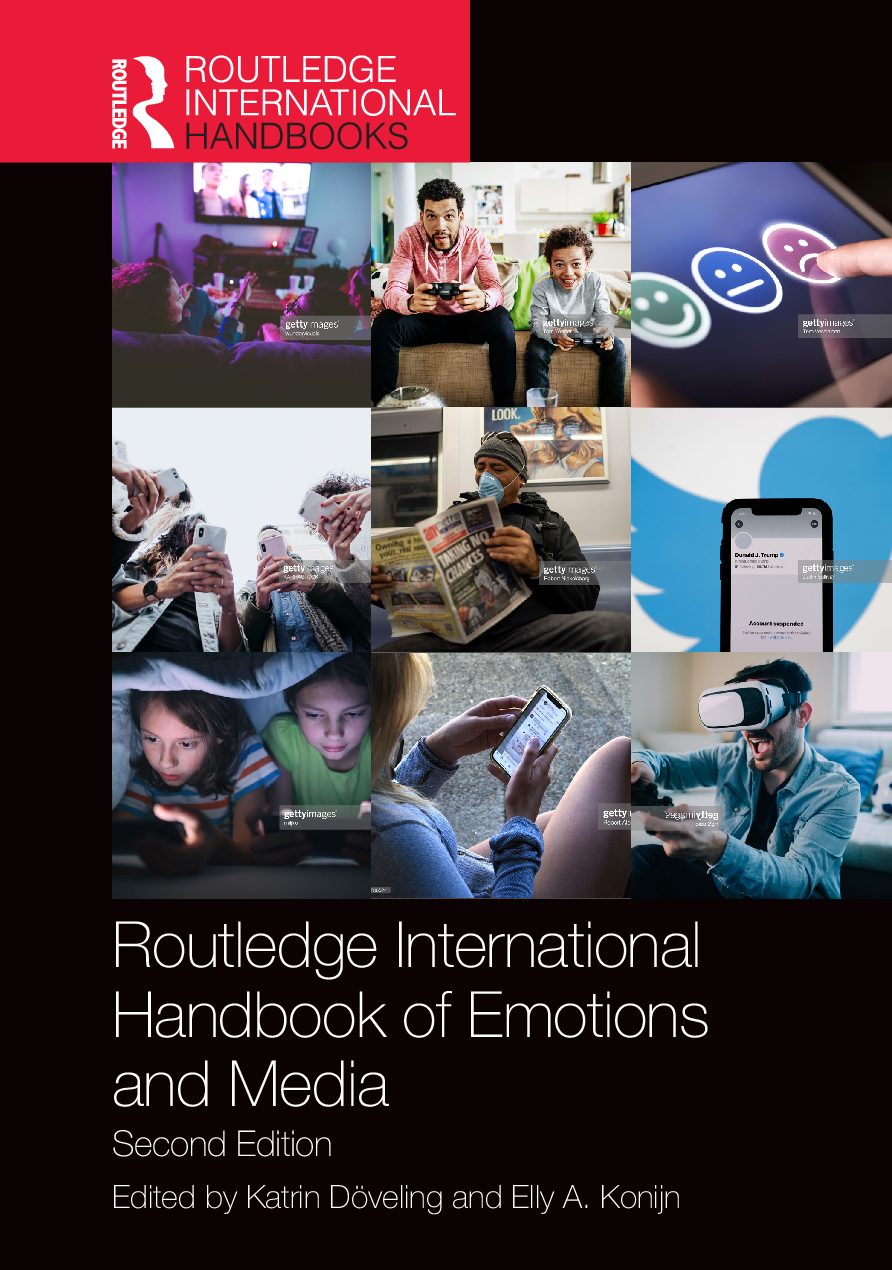In times of a worldwide pandemic, the election of a new US president, ‘MeToo’ and ‘Fridays for Future’, to name but a few examples, one thing becomes palpable: the emotional impact of media on individuals and society cannot be underestimated. The relations between media, people, and society are to a great extent based on human emotions. Emotions are essential in understanding how media messages are processed and how media affect individual and social behaviour as well as public social life.
Adopting a thoroughly interdisciplinary approach to the study of emotions in the context of media, the second, entirely revised and updated, edition of Routledge International Handbook of Emotions and Media (ed. by Katrin Döveling and Elly A. Konijn) comprises areas such as evolutionary psychology, media psychology, media sociology, cultural studies, media entertainment, political and digital communication. Leading experts from across the globe explore cutting-edge research on the role of emotion in selecting and processing media contents, the emotional consequences of media use, politics and public emotion, emotions in political communication and persuasion, as well as emotions in digital, interactive, and virtual encounters.

